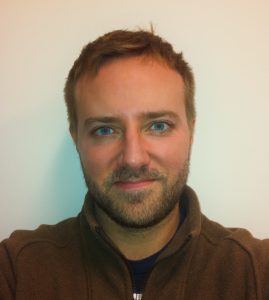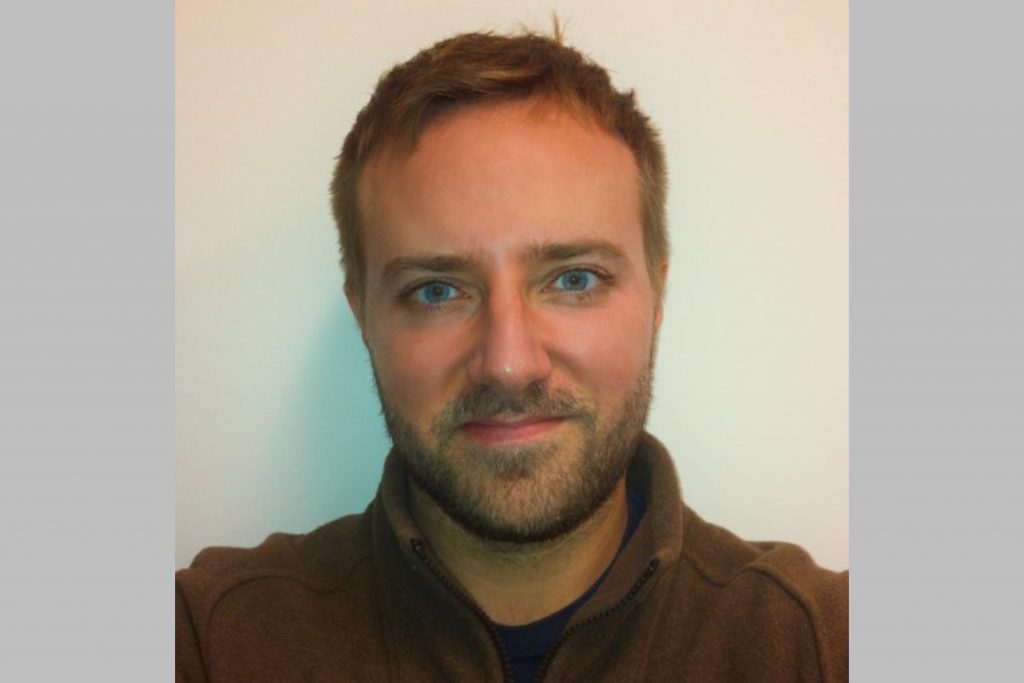We’re taking time to get to know the members of the GSA’s Early Career Scientist Committees. Join us to learn more about our 2020 early career scientist advocates.

Anthony Arena
Policy Subcommittee
University of Illinois – Chicago, School of Medicine
Research Interest
Our bodies are made of a vast network of tubes necessary for proper delivery and exchange of nutrients and waste. Therefore, it is essential to understand how these tubes are formed and maintained. One critical network of biological tubes is our system of blood vessels, known as our vasculature. I am specifically interested in understanding the process of angiogenesis: the development and growth of new blood vessels from preexisting ones. This process is vital to the creation of our small caliber vessels (capillary beds) during development or after an injury, and dysregulation of this process has been linked to numerous diseases such as heart disease, cancer, and more recently to COVID-19.
When I started graduate school I never envisioned that I would be utilizing genetics as a means to answer my research questions. This area of research seemed beyond my reach given that I previously studied chemistry, but now I could not be happier. What I find particularly fascinating is that I can use the model nematode Caenorhabditis elegans’ excretory canal cell – a hollow, unicellular tube responsible for osmoregulation – as a model for studying blood vessel formation. This cell extends four canal arms or tubes from the cell body into two directions: toward the head and tail. Under wildtype conditions these canal arms extend the full length of the worm.
One of the proteins that regulates tube formation in C. elegans is the EXC-4 (EXCretory canal abnormal 4) protein, which is a homolog of the mammalian Clic (Chloride intracellular channel) protein. Worms that lack the gene to make EXC-4 form cystic canal cells with minimal outgrowth, and in mammalian endothelial cells, which line blood vessels, loss of Clic proteins disrupts key angiogenic behaviors such as cell migration, branching, and tube formation. Currently, I am focused on determining the mechanism of EXC-4/Clic regulation via genetic studies and proteomic approaches.
As a PhD-trained scientist, you have many career options. What career paths interest you the most?
Throughout my academic and professional career I have had the chance to interact with a diverse group of people, both educationally and culturally, and I think an institution that champions diversity and collaboration would allow me to flourish as a scientist and educator. I have always envisioned myself at a mid-sized liberal arts teaching college or university that has an equal balance of teaching and research responsibilities. As an undergraduate, I attended one such institution, DePaul University, and had the opportunity to do research as well as work as a teaching assistant. That allowed me to get to know the professors in my program more personally, because there was more emphasis on mentoring young scientists and less pressures to continually publish. The inclusive and collaborative environment supported and fostered my early scientific curiosity, and I would like to do the same for the next generation of scientists.
Equally important to me is identifying an institution that promotes a healthy work-life balance, as my husband and I are planning on expanding our family in the near future. It is for those reasons that I feel my scientific career and personal life would benefit the most from a mid-sized institution. However, I am also very aware that things change very fast and I am completely open to embracing any professional opportunity that will allow me to grow and evolve as a scientist and person.
In addition to your research, how else do you want to advance the scientific enterprise?
I have always had a passion for mentoring and teaching throughout my academic career. I believe that scientific outreach and exposure early in life is crucial to maintaining and cultivating future generations of scientists. Thankfully, I’ve had the opportunity to share my scientific journey and provide support to students who are interested in pursuing careers in science. My continued work as an Adjunct and Alumni Advisor at DePaul University as well as my involvement in the Summer Prematriculation Program in the College of Medicine at the University of Illinois – Chicago (UIC) provides me an avenue to do just that, but I would like to increase my reach beyond that of just higher education. Therefore, I plan to involve myself in programs such as the Short-Term Research Experience for Underrepresented Persons (STEP-UP) Program at UIC, which provides high school students with access to research opportunities and allows them to learn and experience science outside of the classroom. More importantly, such programs allow students to see themselves in these roles in the future and encourages them to continue to pursue their scientific interest.
As a leader within the Genetics Society of America, what do you hope to accomplish?
I have had the opportunity to attend a number of conferences including two GSA-sponsored meetings and one GSA virtual conference (TAGC 2020), and the GSA community couldn’t be more inviting and encouraging. As a member of the Policy Subcommittee, I am excited at the opportunity to learn how to be a better and more effective science policy advocate.
Specifically, I would like to take the skills that I learn in the GSA Early Career Leadership Program and translate them into targeted policy advocacy for additional outreach and funding for early exposure to the field of genetics, as well as programs that demonstrate to prospective students that genetics and science as a whole is an attainable and viable career. Given that the GSA is an international organization that campaigns for the betterment of the scientific community, I am excited at the potential impact that such advocacy can generate for future scientists and the general public.
Previous Leadership Experiences
- Summer Prematriculation Program Co-organizer and Lecturer – University of Illinois, College of Medicine
- Graduate Education in Medical Sciences Student Association Treasurer and Communications Director– University of Illinois, College of Medicine
- Research Technologist – Brandeis University
- Chemistry Laboratory Manager and Adjunct Professor – DePaul University
- First Year Program Staff Mentor and Leader – DePaul University
Connect with Anthony Arena on LinkedIn.































